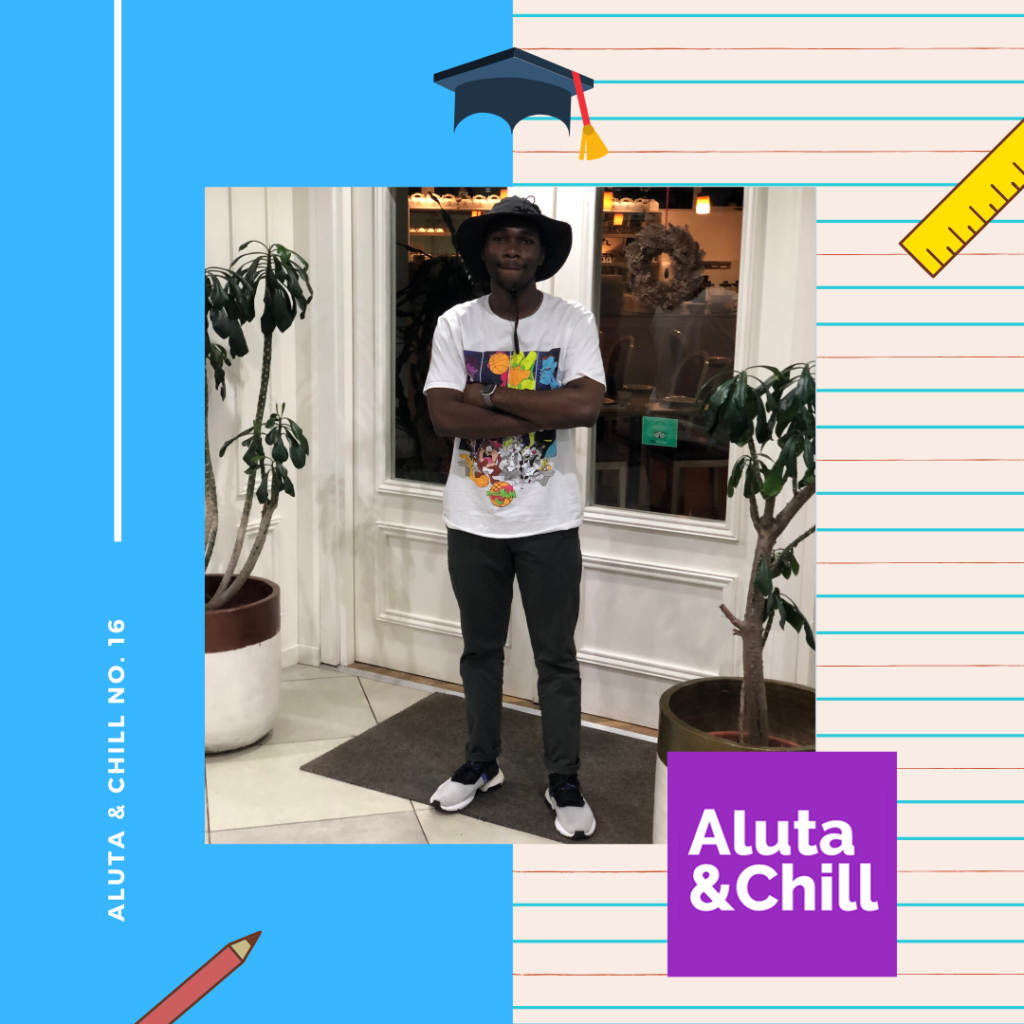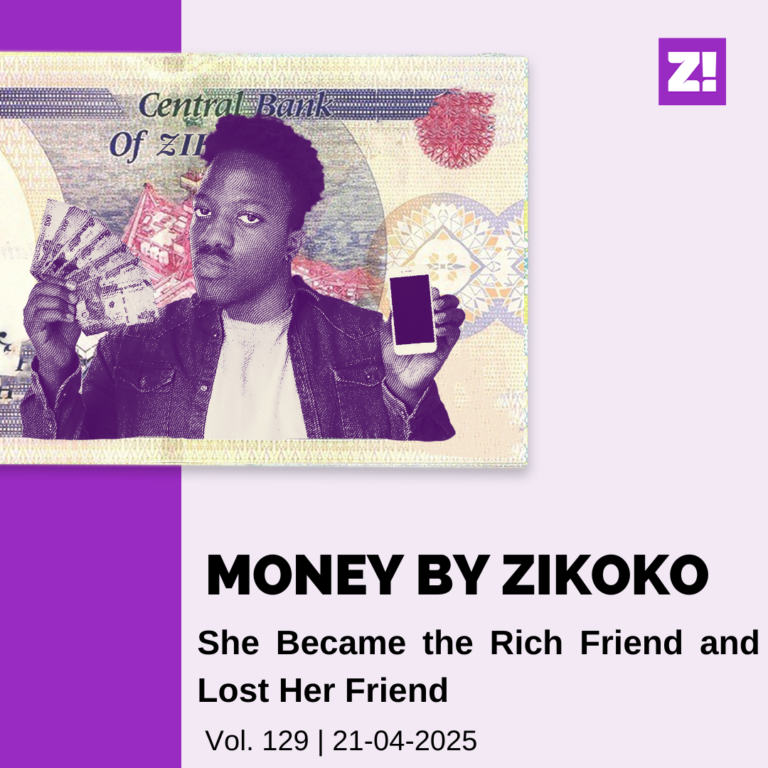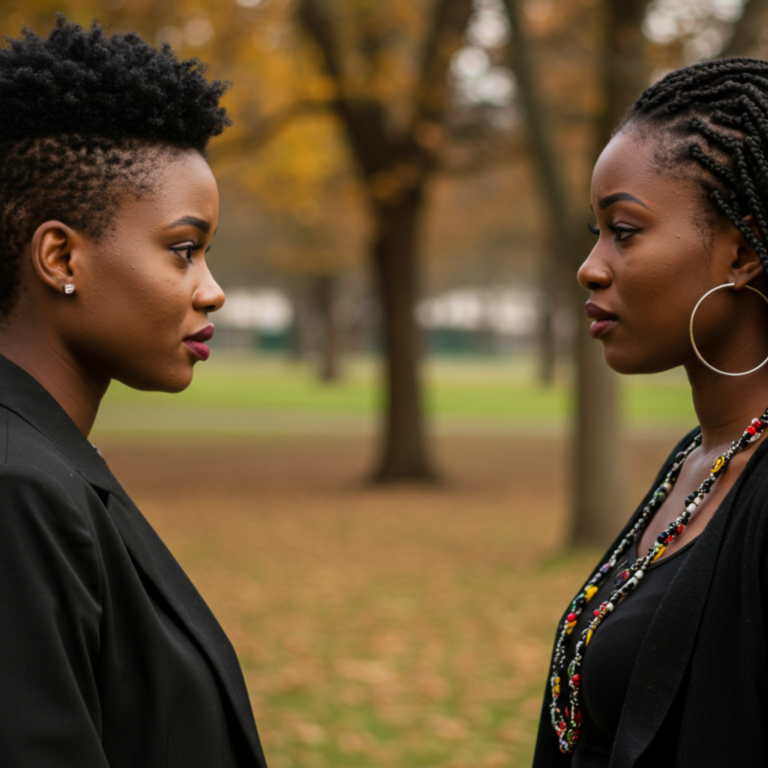Students in Nigerian universities have stories to tell, but hardly anyone to tell them to. For our weekly series, Aluta and Chill, we are putting the spotlight on these students and their various campus experiences.
The subject of this week’s story is Eyitayo Ogunbiyi, a final year student of Computer Engineering at UNILAG. He talks about how he got into coding and the milestones he’s recorded so far.

When did you know that it was going to be UNILAG for you?
I’d always known it was going to be UNILAG, to be honest. I went to International School, Lagos in UNILAG, so it felt right. At first, I thought I was going to do something medical — like neurosurgery — and my mum liked that. But my love for maths and computers trumped everything else and I knew when the time came, I was going to go for computer science or computer engineering. I went for computer engineering.
Why did you choose computer engineering?
I wanted the “engineer” title. It was that simple.
Lmao.
You should have seen how excited I was about university. I was poring through the syllabus, struggling to control all the things I was feeling about everything I was supposed to learn.
However, when the session started, it took me only a few months before the “anyhowness” began to get to me. I would go to class and struggle to glean anything because of a range of factors I had no control over. The lecture halls were either overcrowded or the lecturer wasn’t interested.
I clocked that I had to do a lot of things by myself. At the end of my first year, I was on a first-class, but something didn’t feel right about it. It wasn’t as exciting as I thought it would be. I knew I had to be more than that — I had to shift my focus to something more productive.
What did you do?
During the first year session break, I stumbled on a book called “C for Dummies.” I was bored, so I picked it up. By the time I got to the last page, I knew I wanted to learn more about coding.
You said you’ve always loved computers, why didn’t coding appeal to you before that time?
Well, I’d dabbled in HTML when I was in secondary school because I had a friend who built websites. At the time, I didn’t think it was anything I would be interested in. I was just catching my own cruise. Actually, I thought I would have to memorise all lines of code, and it wasn’t something I wanted to commit to at the time.

Ah, I see.
Even after reading the book, I still couldn’t get rid of the thought that I would have to commit all lines of code to memory — God knows where that thinking came from — Luckily, I found this Youtube channel and that changed everything for me. It became easier from that moment on.
When did you become serious with it?
I doubled my efforts in my second year, and before long, I realised that I was getting good at it and should probably consider it as a career path. That was huge because it wasn’t supposed to be more than a hobby.
How did you figure out that you were getting good at it?
Well, the idea of coding used to be overwhelming for me. Then all of a sudden, I realised that there were no insurmountable blocks for me. I was doing these things and they were working. Everything was falling in place. I thought I owed it to myself to go with the flow, or at least explore it, even though I wasn’t sure of what I would find.
What happened after?
The jobs started coming in. I actually didn’t get paid for the first job I did. A friend got me to write codes for some project his startup was working on. It was a big project, by every standard at the time. Also, It was a fantastic learning experience. At the point, I hadn’t figured out how the whole coding thing was structured, but the gig shaped my proficiency in the tools I would use later in my career. In fact, my favourite programming framework now is something I used on that project.
What did you do after that project?
Freelancing and short-term contract gigs. It was time to take on as many projects as I could. Most of the people I worked with are a couple of other startups. From there, I worked remotely for a company operating out of San Francisco.

That sounds exciting. How was it?
It was such a wild experience. The best part of it was that I worked with a string of people from different cultures — that has a way of opening your eyes to things you’ve missed but have been there all the time. I worked on a range of exciting projects. But I had to leave after 6 months.
Oh, why did you have to leave?
It was time for my IT. I couldn’t work remotely for that one, so I had to leave the company I was with to focus on my IT. I had to because the plan to graduate with a first-class hadn’t changed.
Where did you do your IT?
A tech company in Yaba. Of course, I had to take a pay cut. But the tech I worked with and the fact that I worked on-site made up for that. The company also had these ambitious ideas, so all the projects worked on were futuristic and interesting.
Everything up to this point has been fun, but my favourite experiences so far are the competitions I’ve entered.
Can you tell me about them?
In 2018, the robotics labs, University of Lagos organised this thing where they wanted people to build an autonomous navigation system. I put together a team, we stayed back during the holiday and worked on our stuff. It had to be the best because we won. I really enjoyed that. It was the first time I wrote software that didn’t run on just a computer system.

That must have been so exciting.
It was, but not as much as the second one. In March 2019, Facebook and the United Nations organised a hackathon. The objective was to tackle some of the SDGs using technology, so we used Artificial intelligence to combat human trafficking. I entered the competition and for more than a day, we were coding our ideas. It’s got to be one of the toughest things I have done, but it was so worth it. My team won that one too.
Wiun.
Wait for it. The next thing we knew, we were on a plane to Washington DC to talk about our ideas to the people at the World Bank and mentor some secondary school students from around the world.
Bruh.
After the hackathon, some recruiters at Facebook reached out to me to discuss the possibility of working with them. Unfortunately, I didn’t get the job.
Aw. That sucks.
Yeah, it was an eye-opener though. It made me realise just how much I still have to do. These big tech companies have pretty high bars, which makes sense, considering all the good work they do.
Would you still like to work for them?
Hell yeah! It doesn’t have to be Facebook, though. I just want to work with any of these big tech companies — Facebook, Apple, Google, and the lot of them. And I’m getting closer to making it happen.
What do you mean?
Recently, some people at Quora reached out. We’re still in talks and stuff, so fingers crossed on that. It would be interesting to see where that goes.
That sounds fascinating.
Yeah, it’s funny how something you discovered out of boredom can go on to shape your life and everything you do.
Word! What are you looking forward to now?
I started school well, so my immediate concern is to finish well. For all my grievances with the system, I recognise how much school has helped me to where I am at the moment. I’m still in the first-class region, so I’m looking forward to locking that down.
How have you been able to hold on to your first class grades?
Time management. I always make time for, irrespective of how tight my schedule is. It also helps that I learn stuff relatively fast. That counts as well
Anyway, I’m proud of everything I’ve done so far, and I’m incredibly excited about all the opportunities ahead. It’s been quite a journey, and I have a feeling that I’m just getting started.

Are you currently studying in Nigeria or elsewhere and have a story to share about your life in school? Please take a minute to fill this form and we will reach out to you ASAP.
Can’t get enough Aluta and Chill? Check back every Thursday at noon for a new episode. Find other stories in the series here.




